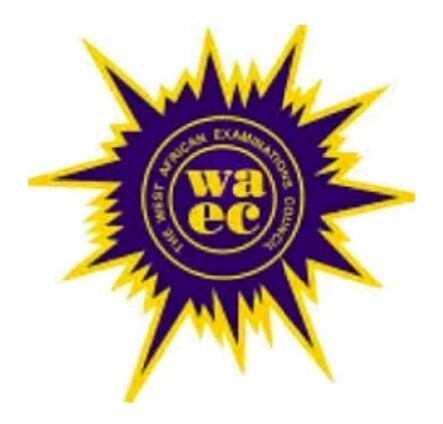Preparing for any examination requires a structured approach and thorough understanding of the subject matter.
When it comes to the West African Examination Council (WAEC) Marketing exam, studying the syllabus becomes an indispensable tool for success.
This blog post will highlight the aims and objectives of the WAEC Marketing syllabus, provide an overview of the topics covered, and emphasize the significance of studying marketing for exam preparation.
The Aims and Objectives:
The WAEC Marketing syllabus aims to assess students’ fundamental knowledge of marketing at the Senior Secondary School level in Nigeria. The objectives of the examination are as follows:
- Test candidates’ knowledge, skills, and concepts required to pursue marketing as a career.
- Evaluate candidates’ ability to establish and manage a market outlet.
- Assess candidates’ understanding of the role of marketing in the economy.
Scheme of the Examination:
The WAEC Marketing examination consists of two papers, Paper 1 and Paper 2, both of which are taken in a single sitting.
Paper 1: This section comprises forty multiple-choice objective questions covering the entire syllabus. Candidates must answer all the questions within 50 minutes, and it carries a weightage of 40 marks.
Paper 2: In this 2-hour paper, candidates are presented with six essay questions. They are required to choose and answer any four of these questions, accounting for 80 marks.
Topics Covered in the Syllabus:
The Marketing syllabus covers various essential topics. Here’s a brief overview of the key areas:
- Introduction to Marketing: This section provides an understanding of marketing, its basic terms (needs, wants, demands, etc.), a brief history of marketing in Nigeria, and the functions of marketing.
- Marketing Concepts: It explores different marketing concepts, including production, product, selling, marketing, and societal marketing.
- Marketing Mix and Marketing Environment: Candidates learn about the elements of the marketing mix (4 Ps) and gain insights into the marketing environment, including factors like political, cultural, religious, economic, technological, and social aspects.
- Products: This topic delves into the meaning, classification, and distinctions between various classes of products such as industrial goods, consumer goods, services, primary and secondary products, and mineral products.
- Markets: Candidates explore the concept of markets and its classification into consumer markets and organizational markets (industrial, reseller, and government).
- Consumer and Organizational Behaviour: This section focuses on understanding consumer and organizational behavior, including influencing factors and the decision-making process.
- Marketing Planning and Research: Candidates gain knowledge about the meaning, process, and importance of marketing planning and research. They also learn about the elements required for marketing planning and the reasons for conducting marketing research.
- Pricing: This topic covers the meaning of pricing, different pricing strategies (haggling, cost-plus, demand, and competition), application of strategies, and price determinants.
- Advertising: Candidates explore the definition of advertising, its functions, different media types, and their advantages and disadvantages. Additionally, there may be a practical component related to the production of sample adverts.
- Sales Promotion: This section covers the meaning and functions of sales promotion, along with various forms such as price-off, coupons, loyalty schemes, and merchandise incentives.
- Merchandising: Candidates learn about the meaning of merchandising, its elements (packaging, branding, and labeling), influencing factors, and functions.
- Distribution: This topic delves into the definition of distribution, channels of distribution, factors influencing channel choice, and the functions of channel members.
- Transportation: Candidates gain an understanding of transportation, its meaning, modes, choice, importance, and the documents used. They also explore factors affecting the choice of transportation.
- Warehousing: This section covers the meaning, types, and functions of warehousing, along with the activities performed in a warehouse.
- Market Unions and Facilitators: Candidates learn about market unions, their types, and roles in local markets. Additionally, they explore the meaning, types, and roles of market facilitators.
- International Marketing: This topic explores the meaning and importance of international marketing, methods of engaging in it, influencing factors, and guiding rules and regulations.
- ICT in Marketing: Candidates gain knowledge about e-marketing (electronic marketing), its meaning, importance, uses, ethics, and potential abuses.
- Entrepreneurship in Marketing: This section focuses on the meaning of entrepreneurship and entrepreneur, sources of funds, factors affecting the location of a market outlet, and the management of market outlets, including purchasing, supply, selling, and bargaining skills.
Recommended Textbooks:
To supplement the syllabus, the following textbooks are recommended for a comprehensive understanding of marketing:
- “Fundamentals of Marketing” by O.O. Shokan – MAM Education Limited, Lagos.
- “Commerce Textbook” by G.A. Saka and Nnabuko J.O. – Emiola Publisher Ltd.
- “Marketing in Nigeria: Concepts, Principles, and Decisions, 2nd Edition” by B.A. Agbonifoh, O.E. Ogwo, D.A. Nnolim, and A.D. Nkamnebe – Afritowers Limited Publisher.
Conclusion
Studying the Marketing syllabus for the WAEC examination is crucial for successful exam preparation.
By following the outlined topics and using the recommended textbooks, candidates will acquire the necessary knowledge, skills, and concepts required to excel in marketing.
Remember, proper preparation using the syllabus is akin to equipping oneself with the right agricultural tools for a productive visit to the farm.
So, make sure to commence your exam preparations with the WAEC Marketing syllabus as your guide.






